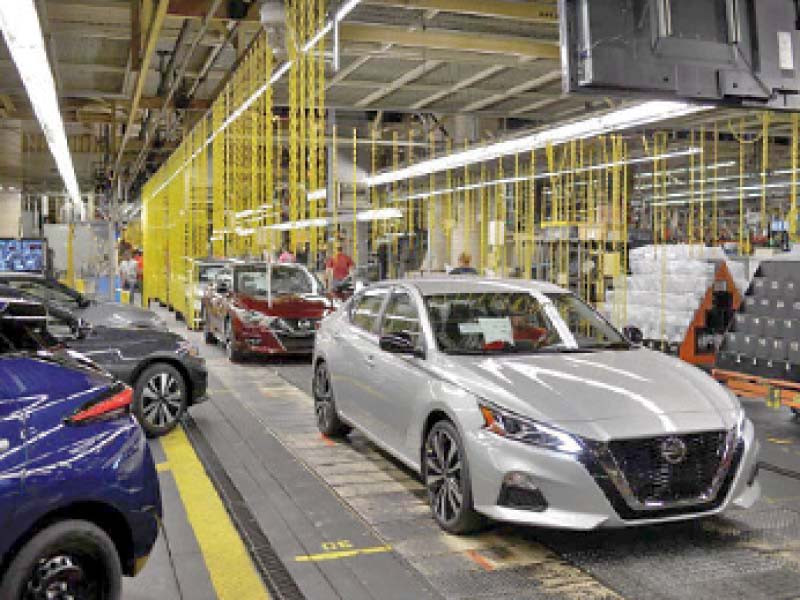
Auto financing by banks hit an all-time high of Rs297.5 billion in Pakistan as consumers’ appetite for owning a vehicle shifted to top gear apparently due to availability of the financing at comparatively low interest rate despite the Covid-19 pandemic related financial risks.
The euphoria to own a car soared to a new peak in the backdrop of introduction of new models and brands by new entrants especially in the category of cars of or above 1,000cc engines and jeep (Sports Utility Vehicles/SUVs) segments.
Car financing by banks surged by Rs86.5 billion or 41% over the first 11 months (Jul-May) of fiscal year 2021 to Rs279.5 billion in May 2021 compared to Rs211.11 billion at the end of June 2020, Pakistan’s central bank reported the other day.
Such growth in demand for car financing was last seen during President Pervez Musharraf’s regime when banks, having ample liquidity, lent significant amount for cars without checking borrowers’ capabilities whether they were able to repay the debt. Later on, the car financing bubble busted when a large number of people defaulted on paying off the car financing. This created a lot of hue and cry in the banking industry and in various cities as well.
The significant cut in the benchmark interest rate by 625 basis points during March-June 2020 to 7% till today have created such huge demand for auto financing. “Banks have passed on the benefit of the rate cut to auto consumers. This has made the car financing products attractive,” Meezan Bank Product Development and Shariah Compliance Senior Executive Vice President Ahmed Ali Siddiqui told The Express Tribune.
Read: Pakistan rolls out plans to tap global green financing avenues
Secondly, the Covid-19 outbreak had put decisions to buy a new car on hold, which had badly hit the auto industry. The manufacturers produced not a single car neither did they sell a single car for a couple of months in the wake of Covid-19 outbreak. They coped with the terrible situation which has now turned around to high demand for cars.
The post pandemic broader recovery in the economy in general and in the auto industry in particular generated double the demand for cars; one the pent-up demand and secondly the demand as usual. “The situation put auto financing in to top gear,” he said.
“Banks which are still offering car financing on no documents (without checking borrowers’ ability to repay the debt), are bound to fail (like they did during President Musharraf times),” he said.
Islamic banks have never offered such reckless car financing. Today, they are leader in car financing segment in Pakistan. “The share of Islamic banks in total car financing stands around 60%,” he said.
Arif Habib Limited Head of Research Tahir Abbas seconded the rate cut has remained the leading factor behind jump in auto financing. This was largely backed by turnaround in domestic economy.
The turnaround in agronomy has created additional demand for cars. Almost all the major crops, except for cotton, have reported bumper outputs this year “Whenever the agronomy is in full swing there is seen additional demand for cars,” he said.
The emergence of new entrants in car assembling sector, especially in expensive SUVs segment, variety in brands and increased competition all have supported the demand popping up significantly, he said.
Read more: Tarin seeks inputs on financing initiative
More importantly, the import of used cars has dropped significantly following the government’s measures against misuse of the used car policy. This has also supported the growth.
The demand may continue to ramp up in the wake of offer for car financing to non-resident Pakistanis for their family members in the country recently.
The central bank’s second quarterly (Oct-Dec FY21) report on the state of Pakistan’s economy published recently added that stable rupee-dollar exchange rate also supported growth in automobile sector, majority of car parts are imported in Pakistan.
The car and jeep segment was the major contributor towards this growth in Q2-FY21. “Multiple factors, including decrease in interest rates, stable exchange rate, and an increase in competition due to new entrants, had a positive impact on this segment,” the State Bank of Pakistan said in the report.
“Lower interest rates contributed to an increase in vehicle financing…The stability of exchange rate also facilitated the output of the automobile sector, as it kept the costs of imported components in check. Meanwhile, the models introduced by new entrants in the market generated interest, especially in the car and jeep segment.
“That said, the growth of the automobile industry may have been underreported in the last few quarters, as the production data from some of these new players has not yet been made part of the LSM index,” it added.
Published in The Express Tribune, July 3rd, 2021.
Like Business on Facebook, follow @TribuneBiz on Twitter to stay informed and join in the conversation.











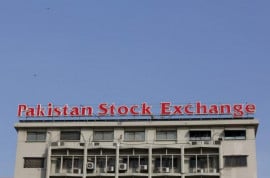
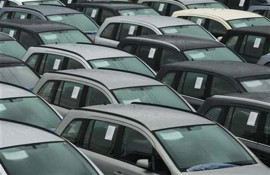
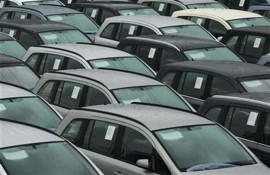
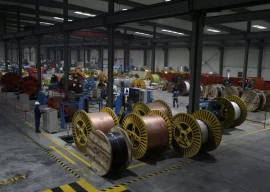
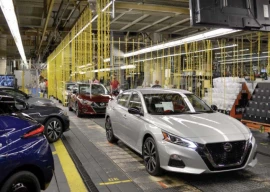






COMMENTS (1)
Comments are moderated and generally will be posted if they are on-topic and not abusive.
For more information, please see our Comments FAQ